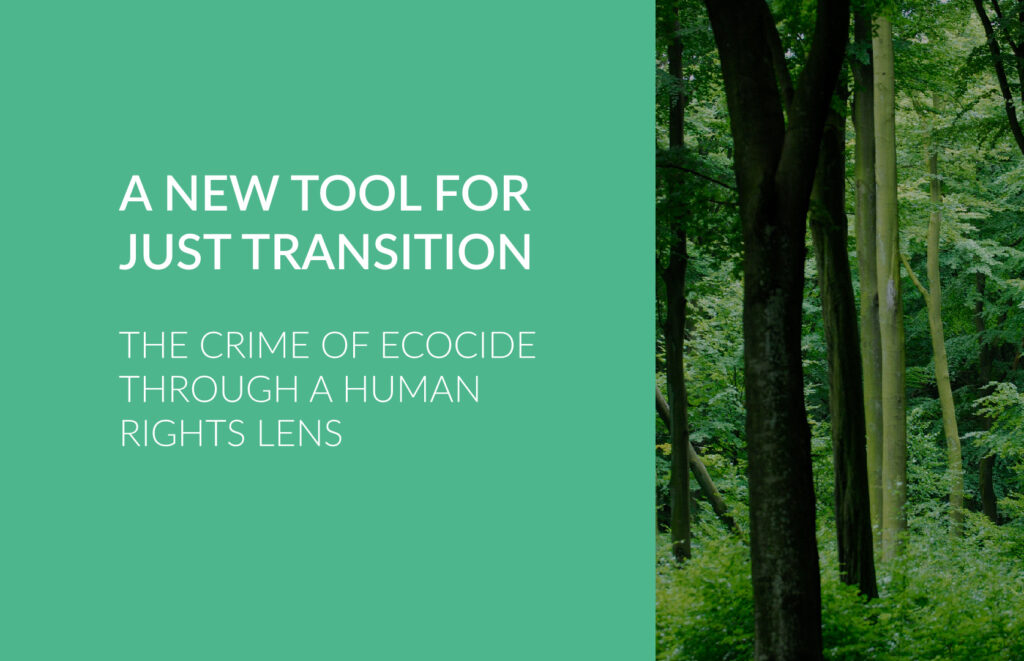- An international crime of ecocide sends a message that massive unsustainable harm to the environment is one of the greatest global challenges to the survival and well-being of present and future generations.
- An international crime of ecocide protects people and planet in ways that current international law does not:
- International human rights law is binding only on states.
- With ecocide as a crime, top decision-makers could be held personally accountable.
Ecocide law should be seen as a tool to protect humans.
- Approaching the crime of ecocide through a human rights lens reveals the human stories of the impacts of climate change and environmental destruction, and has the best chance of generating awareness, accountability, and protection for all.
- Human rights due diligence standards can help businesses understand how to avoid ecocide charges, and make the crime an effective and enforceable deterrent.
Background/overview
The proposed new international crime of ecocide describes the most serious acts of environmental destruction. An independent panel of experts in international law has produced a definition of ecocide for inclusion in the Statute of the International Criminal Court, alongside genocide, crimes against humanity, war crimes and the crime of aggression. As an international crime, ecocide could be prosecuted anywhere, and would not be dependent on national law or domestic political will. In addition, as environmental damage can have cross-border and even global impacts, it makes sense to address it on the international level.
Based on a report by Kate Mackintosh and Lisa Oldring, published by The Asser Institute, Centre for International & European law, Centre for International & European law.
This is the first in a series of Asser Institute reports on the crime of ecocide.







